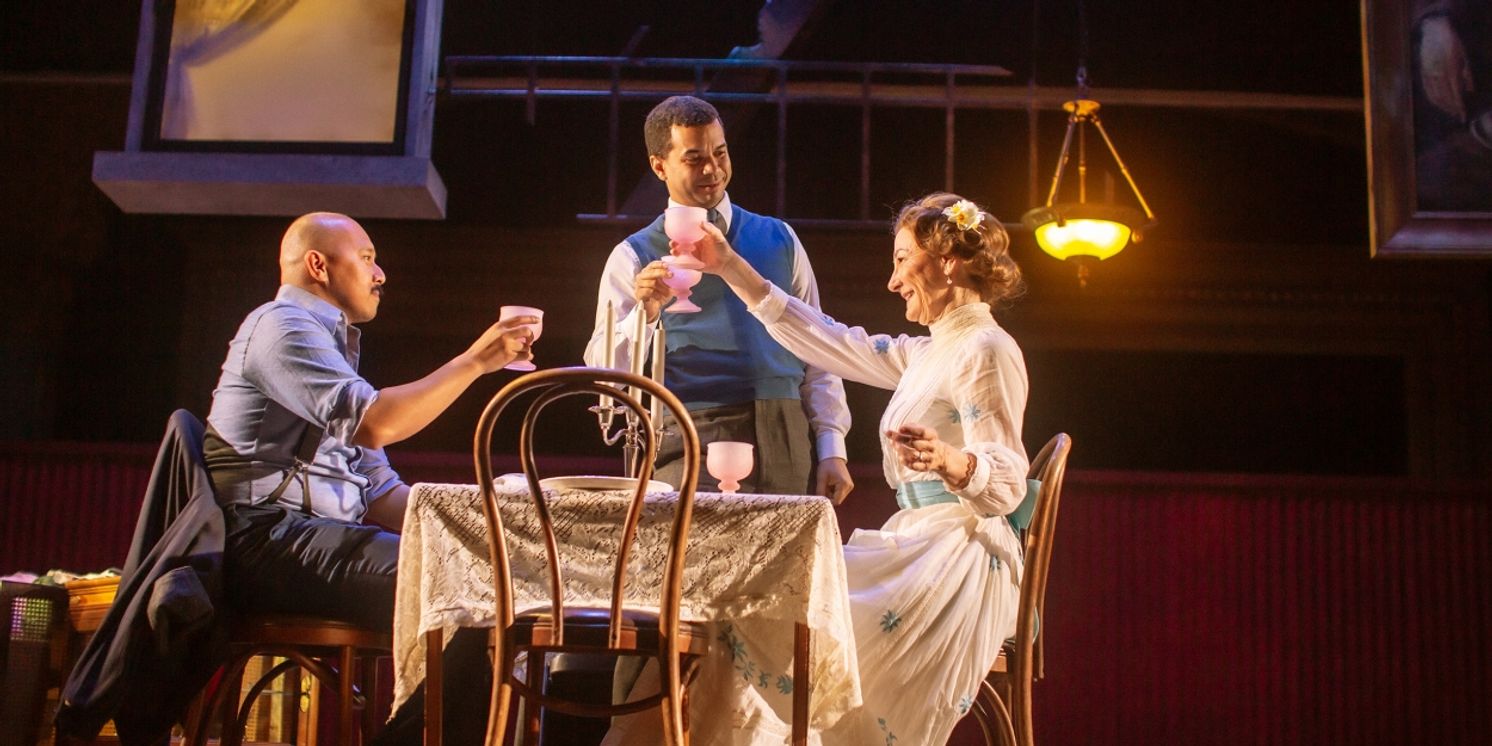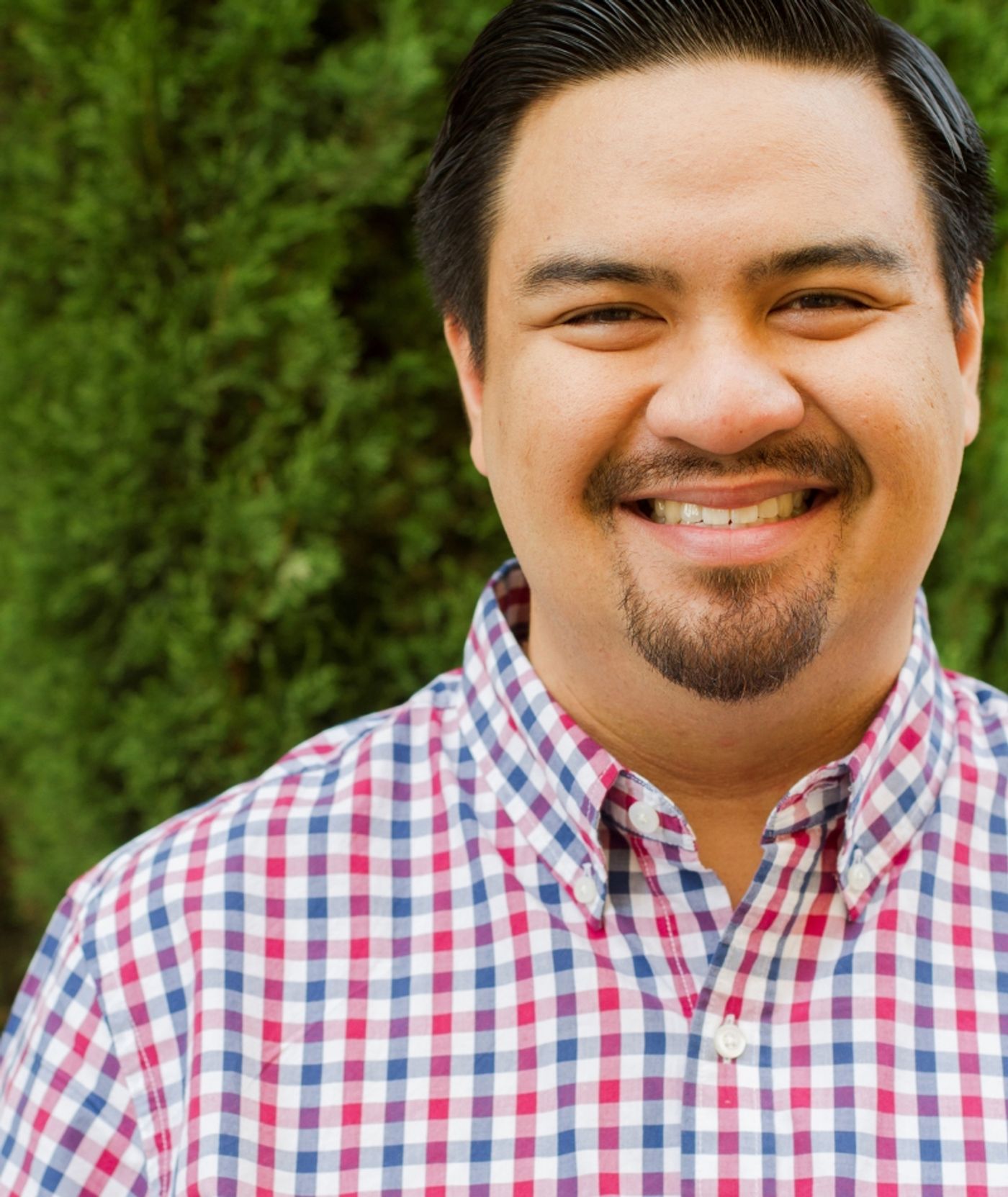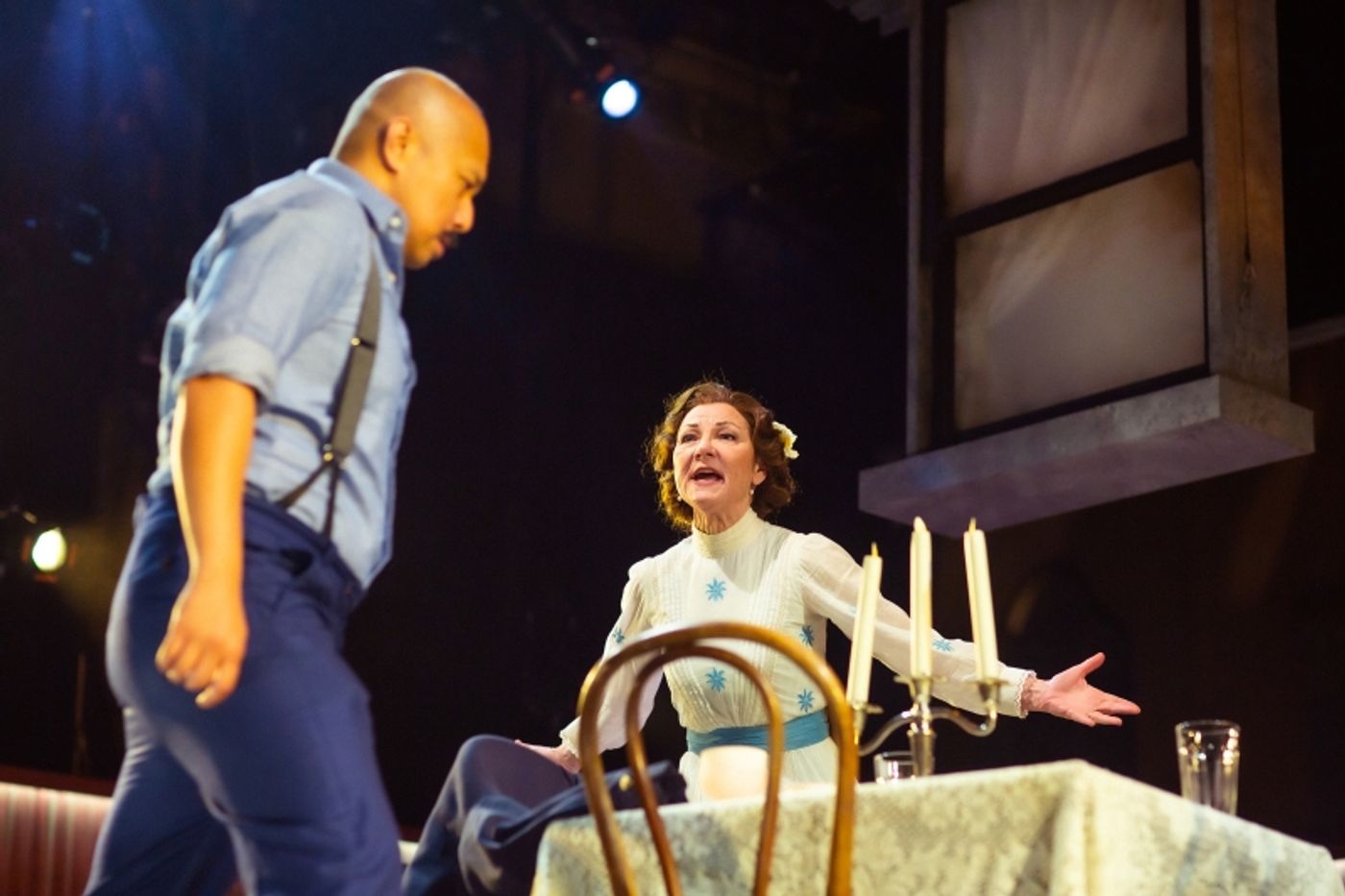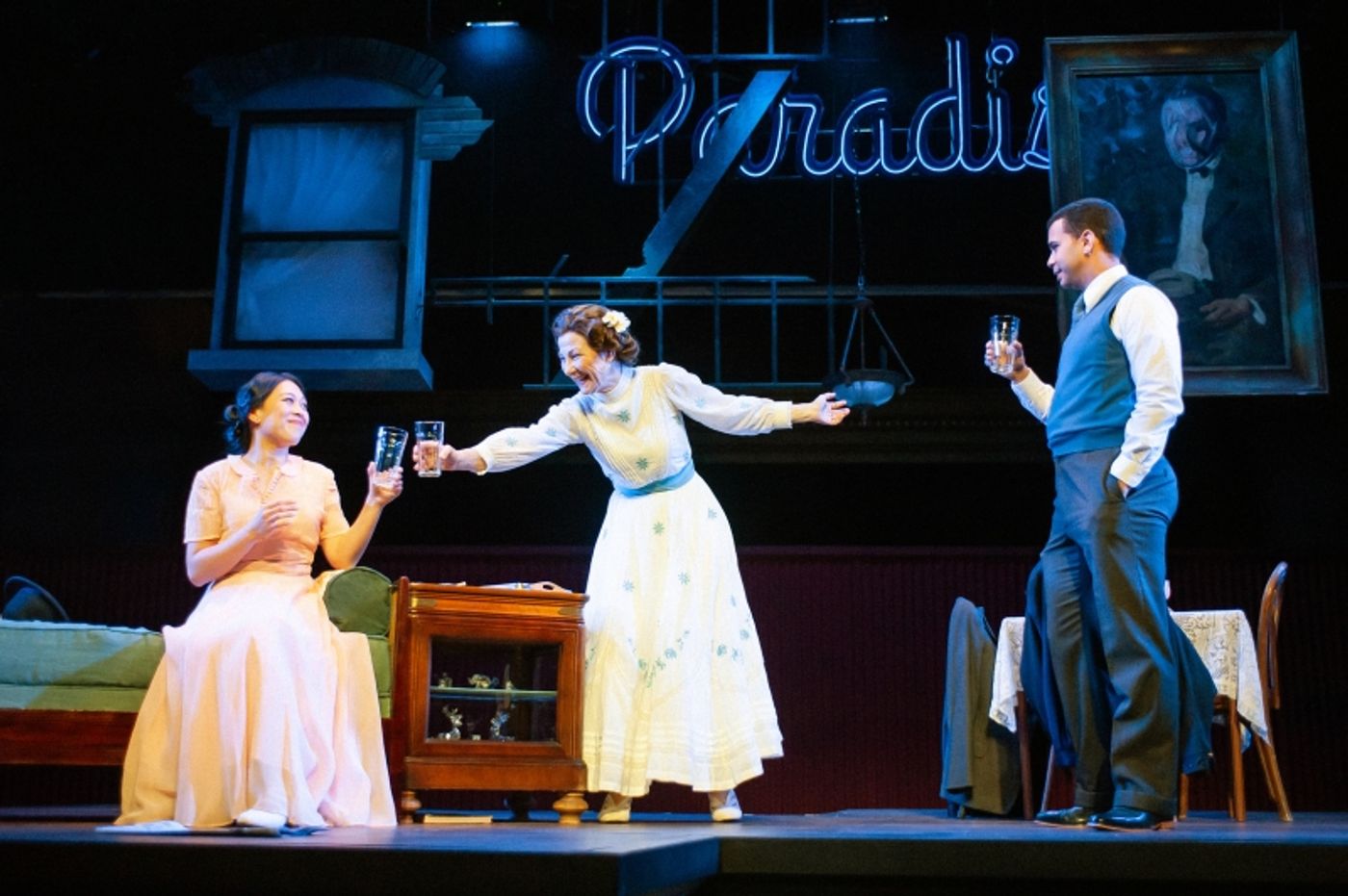Interview: Jeffrey Lo of THE GLASS MENAGERIE at San Francisco Playhouse Offers a Fresh Take on an American Classic
The director's poetic and visually striking production runs through June 15th

The phrase “much in-demand” can sometimes sound like hyperbole, but in the case of director Jeffrey Lo I can’t think of a more apt descriptor. The man has been on quite a tear for the past few years, directing well-received productions of play after play at theaters all over the Bay Area. Most recently, he went straight into rehearsals for Tennessee Williams’ The Glass Menagerie at San Francisco Playhouse immediately after directing Tiger Style! at TheatreWorks Silicon Valley, with nary a moment to breathe in between.
Even though Lo is mostly known for directing new works, he has long wanted to tackle The Glass Menagerie, one of the most acclaimed works in the American theater canon. He is offering a fresh take on this classic with a visually striking and kinetically poetic new production. Told as a memory play from writer Tom's perspective, The Glass Menagerie explores the Wingfield family's pursuit of a better life. Lo aims to look at how Tom's biased perspective as the narrator and a writer shapes the truths in their story.

I spoke with Bay Area native Lo by phone last week just the day before Glass Menagerie’s first performance. Even amid that last-minute frenzy, he came across as his usual good-humored, kind, unflappable self. We talked about why he wanted to direct this particular play, how he created his own unique take on it and how he’s collaborating with his design team to make that a reality, how crazy his work life has been and how he maintains his sanity. As if directing weren’t enough, he also serves as Associate Producer of Casting and Literary Management at TheatreWorks and teaches at San Jose State University and is an accomplished playwright. The following conversation has been edited for length and clarity.
I have to say that The Glass Menagerie is probably my favorite play of all time. Something about the characters and their relationships just really speaks to me. What do you love about the play? Why did you want to direct it?
I love how bold The Glass Menagerie is and how much it looms over the American theater canon, and also how tender the play is in so many ways. People have such strong opinions about The Glass Menagerie because they love it so much, but also because it leaves so much for the audience to latch onto, depending on where they’re coming from. So many people latch onto the story of young people and their mother, so many people latch onto an anxious and challenged young woman being with her crush. Some people might latch onto the queerness of the story and Tennessee Williams, some people might latch onto Laura’s challenges with her leg.
At first, I thought “It’s about all of these things so I’m not doing that thing where I say it’s only about one thing.” But as we were diving into the play and I was talking about how I wanted to present it, given my background I’m like “Oh, this is a play about a playwright. This is a play about writing a play!” And that’s the way we’re presenting it, so I’m actually doing the thing I said I wasn’t doing. [laughs] But I love that it’s about a playwright.
Can you talk more about your vision for the production? I noticed that you’ve cast some Asian-American actors.
Mm-hmm. I think the last time you and I spoke was about [my production of] Little Shop of Horrors [at TheatreWorks Silicon Valley] and in some ways I was able to use that as a reference point. But whereas with Little Shop, where we set it in San Francisco Chinatown and the concept was leading with what does it mean to do this story with a specific location and a specific identity at the forefront, that’s not the approach we’re taking with Glass Menagerie. The background of our actors and how they aren’t what was originally cast in these roles does come up every now and then, but it’s not necessarily how we’re leading the production of the play.
Some plays I think can carry that and you can add a lot by doing that, but with this one, how I was looking at the script and what was speaking to me, I think we were going to work really hard to sort of put something into it that wasn’t really where our interests were landing at the time. But anytime I have the chance to direct, people’s identity and backgrounds, whatever it may be, are always going to be something that I welcome. I welcome us to always bring ourselves into what we’re doing and see how does that give us additional layers and does that bring nuance to what we’re doing.

in San Francisco Playhouse's The Glass Menagerie
I’ve read that Williams himself wasn’t enamored of productions that he felt were too literal or naturalistic. How are you and your design team addressing that?
I’m really interested in the layers of the creative process and I’m leaning into the fact that Tennessee Williams as Tom Wingfield says from the beginning, “This is a memory play.” Therefore, it’s unrealistic and it’s through a specific lens, and Tom is basically announcing himself as an unreliable narrator in some ways. I view this as Tom’s story, but I realized in our process that this play that Tom is writing and sharing with us is his apology letter to his mother and sister.
Our presentation delves into what does it really mean to be an artist trying to dig into memory and to dig into your past to better understand yourself, to better express yourself, for people to better understand each other, and what are the moments in an artist’s journey where maybe they get a little too close. When audiences walk into the auditorium, they’re gonna see our Tom, he’s gonna enter early before the show starts, and the setup of the scenic design when you walk into the theater is you’re gonna see what the set looks like at the end of the play. And Tom walks in and he’s resetting to the beginning. Because, for us, Tom is trying to tell the story over and over again and revising it and trying to get closer and closer to truth, and we’re basically seeing him give this another try. So you watch him reset to the beginning of the play.
There are moments where you’ll see Tom as the playwright feel like something is getting too close to his truth, or too close for his comfort, and he needs to detach himself from the story. The lines are still there, but he has to step away. When we were creating the design concept for what does it look like when the playwright Tom has to detach himself from the story, I was saying, “Tom is telling this story over and over again, trying to get closer and closer to the truth. And the moment that these characters become so truthful that they have a life of their own is when Tom realizes that he got too close to God.” So I’m like “Designers – in lights and sound and scenic terms, what does that mean?” I sort of threw it to our designers to create a world that would envelop that.
As great as the play is, it’s not easy to pull off. Just one case in point: the first time I saw it onstage was the John Dexter production with the seemingly perfect cast of Jessica Tandy, Bruce Davison, Amanda Plummer and John Heard, and even they didn’t really get it right. I remember after that run was over, Tandy even admitted that. What do you think is the key to making this play really deliver?
Well, similarly to what I was saying before, I think that depending on the lens that the artistic vision is coming from there’s different ways to make this play really work. When I told people I was doing The Glass Menagerie, I found it so fascinating that the question I got from so many people was “Whose story is this?” I think there’s a valid answer for any of the three family members it being their story.
I think one of the ways to really make this play work is to make sure that all four characters have the amount of heart and soul that the real people that this play was based off of had. It’s easy for it to land in caricature and it’s easy to be a little too simplistic with it, especially because we’ve all known it for so long. I think the play really sings when everyone is filled with heart and realism. Although every single one of these characters leaves a lot to be desired in their approach to life, I think everyone is right and everyone is wrong. And I think that’s what makes it a great story and makes it a great play.
Your Amanda is Susi Damilano, who in addition to being a fabulous actress just happens to be the Producing Director and Co-Founder of San Francisco Playhouse. What is it like to direct someone who is sort of your boss?
Susi’s been so wonderful and a joy in that sense. I think it could be really challenging to do that, right? It’s not unusual for an artistic director or managing director or founder to act in a play and be directed. I haven’t done it too often, but of course I’ve heard of stories where an artistic director who is acting in a play will sort of put their ideas or their vision at the forefront, as opposed to being as collaborative as a room wants to be.
It could be a challenging dynamic, but Susi really makes it not that. She’s been so wonderful in being just as collaborative as anybody else in the room. She’s so game to try things, and she’s so game to also offer input on her vision and her thoughts on Amanda in a way that hasn’t gotten in the way of the process at all. Also, what’s been really nice is by having Susi in the room we now have a direct line of communication for anything we might need for the production.

I swear that you’re the hardest working director in the Bay Area right now. It seems like practically every other week I see an announcement that Jeffrey Lo will be directing another play. How do you manage to juggle so many productions simultaneously at different stages in their development? How do you maintain your sanity?
Sometimes more successfully than others. [laughs] I will say that going from Tiger Style! to Glass Menagerie was in some ways a real challenge, mostly in regards to my energy levels. But in some ways it was so interesting, like thinking of Amanda and her parenting style and just getting off of Tiger Style! and that exploration of parenting sort of went hand in hand. The parents in Tiger Style! leave a lot to be desired, but also you understand them and you have a lot of sympathy for them, similar to Amanda. I had this memory when I read this play when I was much younger of Amanda being much more of a monster than she really is. Now, being more mature, I’m more understanding of other perspectives. I of course wish Amanda dealt with things in a different way, but I really understand her, I get where she’s coming from. And so that’s been really interesting.
In terms of how I juggle all of those things, I try my best to really keep organized. I also have the pleasure of working with a really amazing team of artists and designers. I have a shorthand with them so we’re able to work rather quickly because we understand each other. I can rattle off my sort of unclear description and vision of what speaks to me about a play and oftentimes they’ll be like “Oh, I understand where you’re going with this because I know you.”
I might be lying to myself, but next season I am doing less. I was like “I can’t keep doing this to myself!” [laughs] I just love the work so much. I love theater, I love creating stories and really do believe in how powerful it can be, so it’s hard for me to not want to jump on exciting projects. I just have to really check myself. And Francis Jue has been really lovely. He’s like “Jeffrey, you need to take care of yourself because we need you.” He’ll say that to me all the time, and I’m trying to take Francis’ advice because that’s always done me well in life.
The fact that you’ve been working so frequently and at so many different theaters means you’re obviously someone people really want to work with. What do you think it is about you and your skills and your approach that makes people want you at the table as director?
[long pause] Oh, I’m bad about talking about myself in that way…
Yeah, most people are! [laughs]
I’m very flattered and honored that a lot of people do think of me to take on really wonderful projects. The thing that I hope is the truth is that as a director I try to create a room where everyone feels as safe as possible to make the boldest choices that they can. I want people to feel safe to make mistakes, and I try to do that in a lot of ways. I’m like “Let’s throw out all of our ideas and if it’s not the idea that we’re gonna go with, that’s okay.” Also sometimes your boldest ideas are going to create the most exciting versions of things.
And so I like to think that that sort of joy and the dedication to exploration and the safety of people’s wellbeing, the fact that that’s at the forefront of my process, is one of the reasons people enjoy working with me. I also try to remind myself – I don’t think I originated this thought, it was one of my mentors, maybe Leslie Martinson who gave me this - that my job as the director is not to know how to do everyone else’s job. My job as the director is to be able to identify all the great ideas that everyone else has and make it cohesive to a vision. Because at the end of the day the lighting designer knows how to light a show better than I do, the sound designer knows how to create sound better than I do, the actors certainly know how to act better than I do. My job is not to tell anyone how to do their job. My job is to keep us on track, keep us in a vision and make it so we’re all creating the same play. So I like to think that amount of trust I put in artists makes people want to work with me.
In terms of theater companies wanting to hire me? I don’t know – I try to stay on budget?! [laughs]
Speaking of financial concerns, given the high cost of living in the Bay Area and limited funding for regional theater, even as an incredibly prolific theatermaker are you ever able to feel financially secure?
Yeah… kind of, and I’m luckier than most in that regard. You know, all artists aren’t making enough, and in the Bay Area everyone regardless of background or job is paying too much [for living expenses]. In some ways I’ve been really fortunate cause I have an administration job at TheatreWorks, and I teach Playwriting and Asian American Theatre History at San Jose State. Those are pretty stable paychecks, but again as I was saying earlier about my energy levels – I do love the work, but one of the reasons I work so hard is to make sure that I can set some money aside and have some savings just in case I don’t get work for a while, or just in case anything happens, you know.
So, yeah, it is hard. I hope that we gain some semblance of more institutional and government funding for the arts because I think the arts is so important. The arts helps us better understand the world we’re living in, and I think that the government supporting that work and making it more sustainable financially is something that should be a priority.
Do you ever have thoughts of going somewhere like New York where you might have the opportunity to earn more money?
Hmm, I don’t know… I’ve had the chance to work in other parts of the country and certainly, when the timing works out, I’m always happy to do that. I don’t know that I’m particularly interested in moving wholesale to another place. I was born and raised in the Bay Area and I love being a part of this community. I came back here after college and this community, both the theater community and this community in general, really took care of me so I’m really happy to be doing the work that I’m doing here. I do hope to every now and then to maybe do one or two shows in another part of the country, be it New York or wherever, but at this moment in time this feels like my home base and I’m happy with it in every way except for the amount of rent that I pay. [laughs]
I couldn’t talk to you and not mention your work as a playwright. Do you currently have anything in the pipeline?
Yeah, I have actually! This weekend I’m gonna miss it cause I’m in previews for Glass Menagerie, but for ten years I’ve been a part of the Ohlone College Playwrights Festival where there’s a group of playwrights who write ten-minute plays for their acting students. That’s performing this weekend and I have a play in it, so that’s exciting.
Next season, I actually have two plays that I’m working on getting premieres, which is super-exciting. My play Writing Fragments Home is going to be done in April of 2025 at Hillbarn Theatre in Foster City, and I am so appreciative. That’s a play that’s been so near and dear to my heart and I’ve been working on for a long, long time so I’m really, really excited that that’s finally happening. And then at Los Altos Stage Company, myself and Max Tachis are creating a new adaptation of Cyrano that’s gonna be performed in 2025 as well.
---
(The Glass Menagerie production photos by Jessica Palopoli)
Performances of The Glass Menagerie continue through June 15, 2024 at San Francisco Playhouse, 450 Post Street. For tickets and more information, visit sfplayhouse.org or call the box office at 415-677-9596.
Videos

